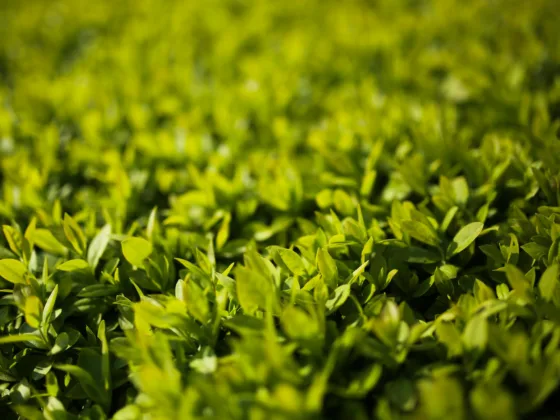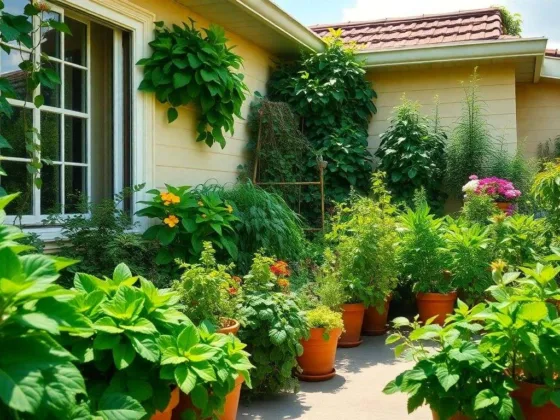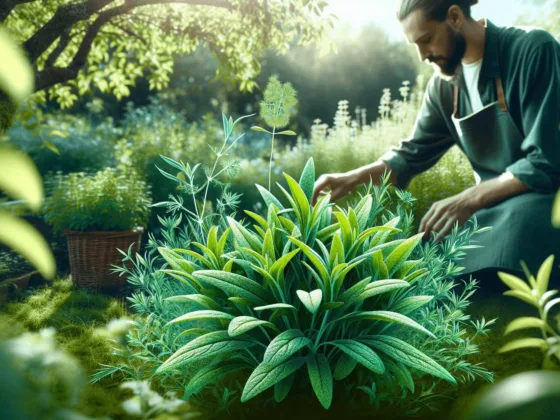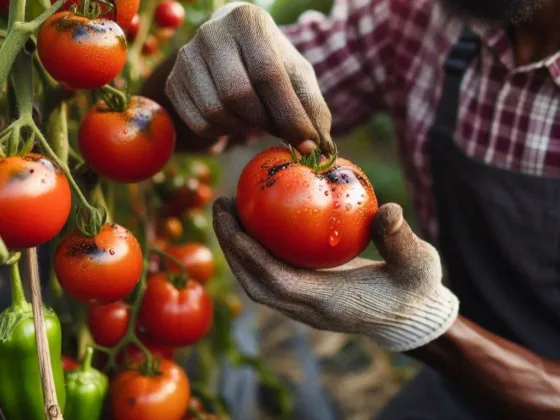Table of Contents Show
Artificial Intelligence is increasingly becoming more mainstream, where things that we used to see only in science fiction-based movies are now becoming part of everyday life. As a result, global spending on AI has risen substantially just in the last year.
The farming and agricultural industry is a more significant and promising area in which AI is being used. The use of AI happens in both private-small scale gardening and large commercial businesses.
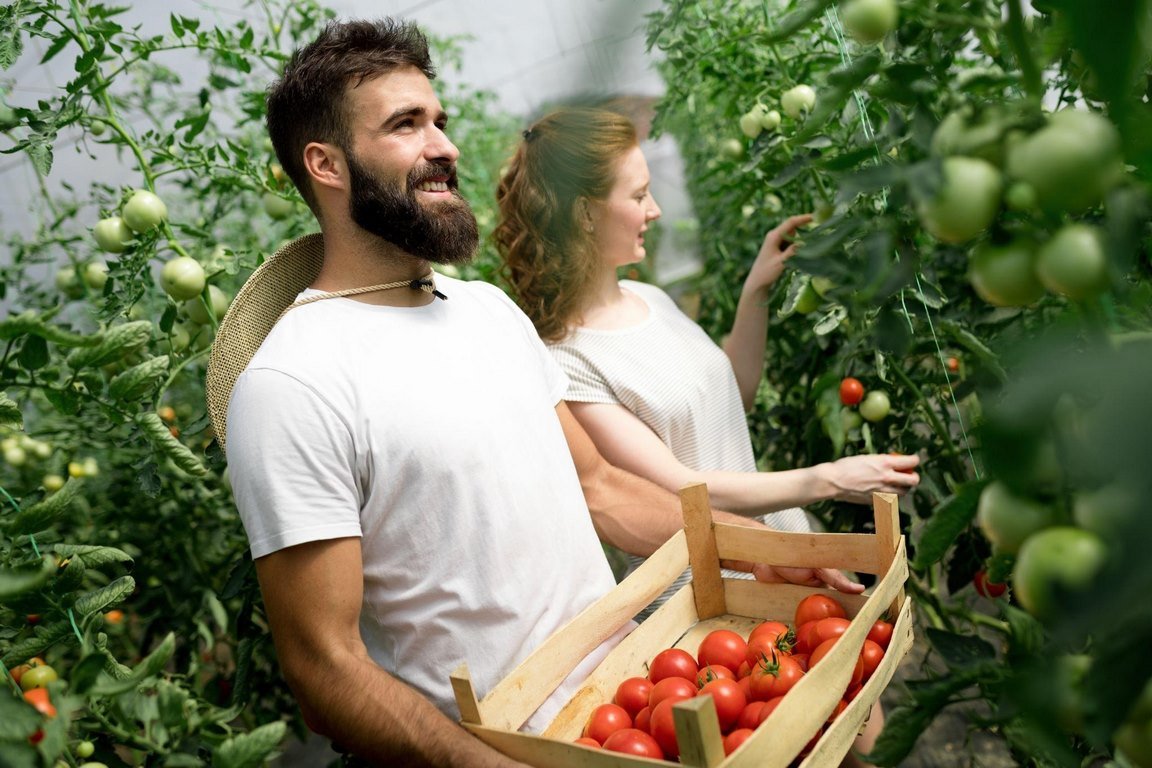
So, how is AI used in indoor gardening? And, more importantly, what are the benefits of AI for indoor farming?
Multiple elements have attributed to this gravitation towards farming technology. While robots will not take over the world, artificial intelligence is making its mark in the agricultural industry with many changes.
What Exactly is AI?
Whenever technology in the form of a computer or other science is utilized to carry out a task that usually would instill human intervention, this is what most people consider to be artificial intelligence. There have been numerous developments in AI over the years, and there are many ways in which AI affects our daily lives now.
Agricultural production has increased rapidly over the years, to continue to grow with the world’s population. As a result, farmers have begun to embrace the benefits of technology to grow their foods. There are multiple ways in which AI has changed farming, and as production continues to evolve, you may experience purchasing produce that someone else never had to touch.
Read Also:
Problems With Food Production
There are plenty of people who garden to develop their own methods of food production, whether it is to eat more healthily or just to have more control over the foods being eaten. However, farmers and gardeners face plenty of problems when growing crops like unwanted pests, knowing when crops need to be planted throughout the year, and understanding the ins and outs regarding each specific plant.
Other problems affect food production when farming and gardening, such as weather. For example, plants can contract airborne or waterborne diseases, and natural disasters like floods, tornados, and hurricanes can completely destroy gardens and crops in the blink of an eye.
Where AI Comes into Food Production
Artificial intelligence is revolutionizing the farming industry. Indoor farming has become an innovative method for farmers and gardeners to grow all their foods in a controlled and pes-free environment. They can control every measure of production when utilizing AI, including temperature, C02 levels, light, soil, nutrients, water, airflow, and much more.
With this kind of controlled environment for farming, food is easier to grow, cultivate and multiply. Vertical farming is an at-home process of growing your foods in an upward fashion, which saves space, and resources can be optimized since you wouldn’t need to use as much.
What Are the Benefits of AI with Indoor Gardening?
Utilizing AI-powered farming and gardening technology provides a plethora of benefits. Besides the controlled environment for easy growth of foods, you can also save water and soil since you can run on solar energy.
Saving Money and Resources
Intelligent agriculture also provides a maximum return on investment (ROI), so indoor farming technology is a wise financial decision for farmers and gardeners.
Pesticides are used frequently on outdoor crops to kill pests or deter rodents and other outside animals from eating and destroying them. However, with indoor farming, the need for any type of harmful chemicals or pesticides on your plants is slim to none.
With plans being grown more domestically indoors, countries will not need to import food from overseas. Food production becomes more localized, and people will experiment with growing more innovative and exotic plans instead of spending a ton of money on them.
Temperature Control
AI with indoor gardening allows you to control the temperature of your foods adequately. Tomatoes, for instance, grow best with a temperature that is between 65 to 85 degrees Fahrenheit. However, since daily weather is challenging to predict, tomatoes can easily be destroyed with just a couple of days of weather that is too cold or too hot for their ideal growth. Indoor farming and the use of AI eliminate the question of what the temperature will be daily.
Air Quality
Robotics can be used to calculate the temperature needs of foods so that air quality control can be established for flourishing crops. Humidity usually increases the risk of bacteria and fungus on plants. But, with AI controlling the air and temperature, there is no harm to your fruit or vegetable garden’s growth process. In addition, AI keeps any mold or bacteria from developing.
The pressure of water vapor on plants is also an area that AI can measure. The pressure helps plants retain moisture instead of evaporating, so things like smart sense technology allow controlling that water vapor allowing for an ideal growing atmosphere. It also contributes to water conservation since you won’t be using too much (or too little).
Advanced Irrigation
Robots in AI can deliver the correct amounts of moisture within the soil on an ideal schedule. Machine learning aids robotics in understanding how the soil is affected when irrigated to be smart and more accurately feed the crops. Irrigation systems will be more responsive to successfully utilize less water and soil and manage nutrient loss in foods.
Indoor Farming and New AI Developments on the Rise
Some farmers and gardeners are not as quick to embrace AI technology for growing and maintaining their plants. The biggest reason for this is the expensive investment to instill and employ indoor farming. However, after seeing all of these incredible benefits to food production and growth, the benefits far outweigh the initial cost to begin.
AI can solve some of the massive challenges we face as populations continue to grow and the demand for more efficient food production is necessary. As these changes continue to occur, it will be interesting to see how AI will continue developing and responding to these demands.
AI is not meant to take over the agricultural industry, but it plays a more integral and significant role in food production. Since farming technology provides farmers and gardeners with the highest quality, most organic, and less shortage of produce, there is no surprise that indoor farming methods will grow and advance in the years to come.




